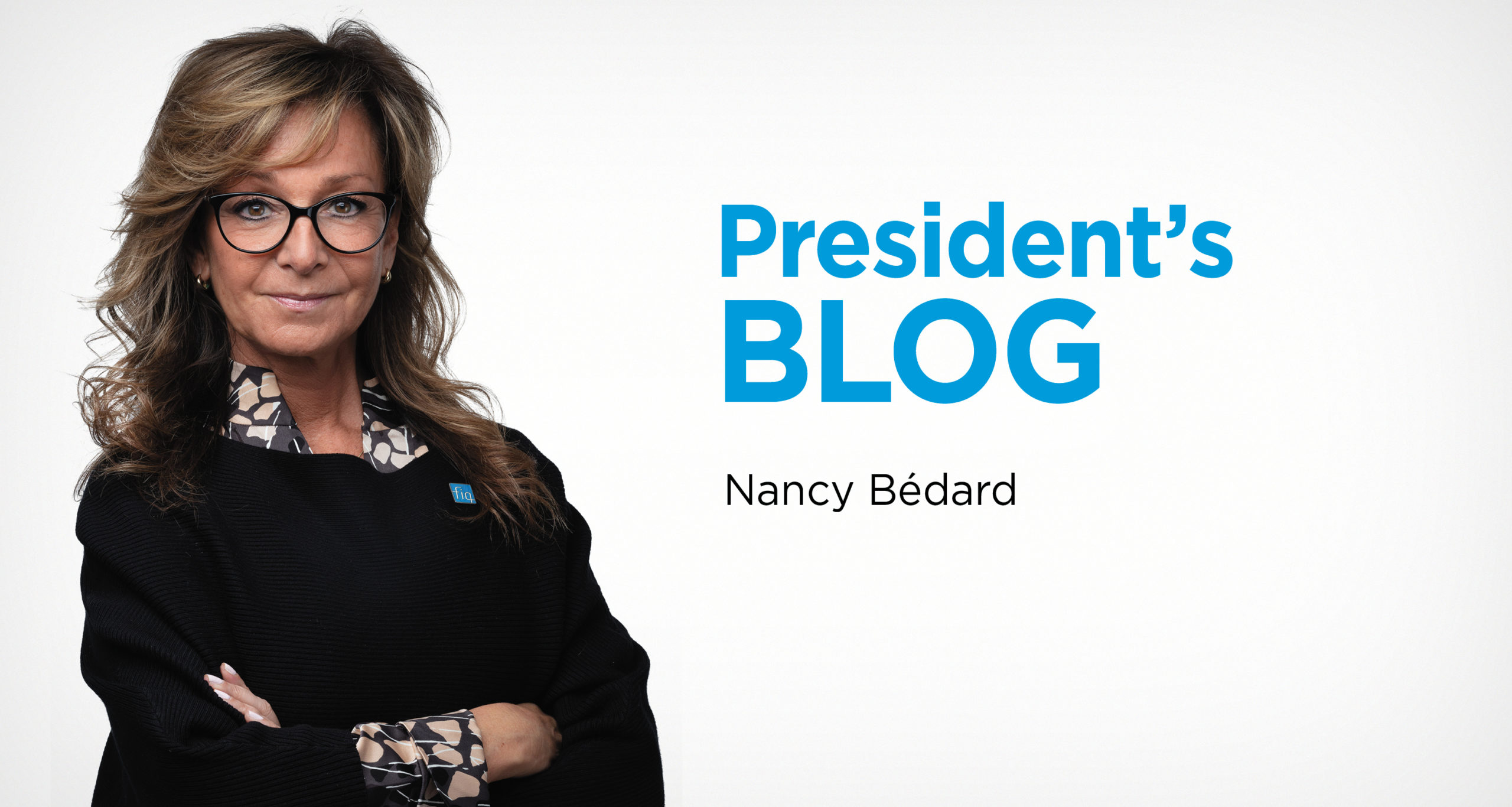
The labour shortage: a smokescreen of accountability
In mid-August, Minister of Health and Social Services, Christian Dubé, presented his plan for facing the 2nd wave of COVID-19. To learn from the first wave and, consequently, better tackle the second wave, the Minister’s plan featured a series of measures to be implemented by September 30. One of the measures was to prohibit staff mobility. While our organization has been denouncing the harmful effects of staff mobility and hiring independent labour on care quality and safety for years, it took a pandemic with disastrous consequences to get the government to side with our reasoning.
There’s no doubt that transferring staff played a key role in spreading the virus in healthcare institutions. Combined with a lack of proper protective equipment, the comings and goings of several tens of thousands of healthcare workers from different sectors turned staff into major vectors of transmission. Once the first wave was over, everyone agreed on this overwhelming finding.
However, the ink on Mr. Dubé’s plan wasn’t even dry yet when the government’s determination to prohibit mobility wavered. While strongly emphasizing that beneficiary attendants would no longer be mobile, nurses and licensed practical nurses would be mobile if there were service interruptions during the second wave. We’ve heard this a hundred times before. For ages, the government and healthcare institution management has been using the labour shortage to explain all the network’s problems when in reality, the problems are largely due to the poor decisions that were made. The shortage is by and large an “artificial and structural” shortage resulting from healthcare professionals’ poor working conditions, which were created by an out-of-touch management approach that has led us to this dead end.
Healthcare professionals are sick and tired of being the only ones to bear the brunt of these bad decisions. Since the beginning of the pandemic, instead of taking a positive approach, one that shows appreciation and recognition, the government chose coercive measures, to manage workers with ministerial orders that stomped on healthcare professionals’ rights. It’s had serious consequences. On one hand, healthcare professionals are exhausted, overloaded and demotivated. On the other, patients sometimes have trouble accessing care or get inhumane care where the quality and safety just aren’t there.
Over the last few months, we pulled together and summoned the energy necessary to face what we all thought of as a public health emergency, as we do in times of crisis. This crisis is a long marathon and will extend beyond the second wave. Healthcare professionals are already resigning and they have the highest number of overtime hours clocked in the country. The government keeps saying that the healthcare system is extremely fragile and we need to protect it. Day after day, it calls on everyone to show solidarity, but when will the government show solidarity with healthcare professionals? We cannot leave the weight of the pandemic solely on the shoulders of those who’ve been on the front lines for months. What is the government waiting for to implement short- and mid-term solutions that will allow nurses, licensed practical nurses, respiratory therapists and clinical perfusionists to see the light at the end of the tunnel? The next few weeks will be decisive for the future of healthcare professionals and the public healthcare network. Who is responsible for the current state of the network? Both past governments and the current one. The CAQ was elected two years ago, having made several promises to healthcare professionals. Its inaction over the past 24 months has contributed to the degradation of healthcare professionals’ working conditions, as well as to the spiralling level of public care and services. The government should consider itself warned: stop using the shortage as a smokescreen of accountability!